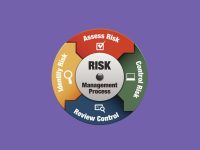Used Beverage Cans (UBCs) are among the most valuable and recyclable forms of aluminium scrap, yet the United States struggles to recover even half of them. Despite the aluminium can being 100% recyclable and capable of returning to shelves in just 60 days, America recycled only 45.2% of its aluminium beverage cans in 2023.
This figure lags significantly behind global leaders: the European Union averages 70-75% and Brazil exceeds 95%. The result? Billions of dollars in lost resources and growing pressure on a strained supply chain.
Why Is the US UBC recycling rate so low?
The problem isn’t technological. The US boasts some of the world’s most advanced sorting, decoating and aluminium processing systems. The true bottleneck is collection.
Fragmented state legislation, outdated deposit return schemes (DRS) and lack of public engagement are undermining recovery efforts. Currently, fewer than 20 states have active DRS policies and many are underfunded and politically neglected.
Image used for representational purpore
The economics of UBC recycling make the case clear
Recycling aluminium saves significant energy. Each metric ton of recycled aluminium saves around 14,000 kWh of energy compared to virgin production. Increasing the recycling rate from 45% to 75% could:
- Save more than 50 trillion BTUs of energy annually
- Reduce CO₂ emissions by over 2 million metric tons
- Recover over $1 billion worth of aluminium lost to landfills each year
That’s not just waste, it’s a strategic and economic failure.
Supply chain impact: Why OEMs should care
Aluminium is vital for industries like automotive, aerospace and packaging, especially as demand for low-carbon materials grows. Many manufacturers now require minimum recycled content for sustainability compliance. Without a robust domestic UBC recycling network, US manufacturers risk losing their competitive edge.
Deposit return systems work – So why not expand them?
States with strong DRS programs report UBC recovery rates exceeding 70%, while states without such systems struggle to reach 30%. A nationwide, modernised DRS, backed by federal leadership and industry collaboration, could be transformative. Complementing this with smart infrastructure, consumer education and automated collection would further unlock the potential of the UBC stream.
UBCs: The most efficient aluminium scrap to recycle
It takes 95% less energy to recycle aluminium cans than to produce them from bauxite. Yet if UBCs are tossed in trash or contaminated waste streams, we lose more than material, we erase an entire circular value chain.
If the US improved its UBC recycling rate to 85%, it could:
- Divert over 20 billion cans from landfills annually
- Recover 300,000+ tonnes of high-grade aluminium
- Produce more than 2 billion new cans without mining new ore
- Power multiple electric furnaces and significantly cut carbon emissions
UBC recycling is also a job creation engine
A revitalised aluminium recycling network could generate thousands of local jobs, from urban collection to AI-powered sorting and processing hubs. With the right public-private investment, UBC recycling could become a core pillar of green industrial growth in North America.
Time for action: A national strategy for aluminium can recycling
Global aluminium demand is rising. Sustainability is no longer optional. UBCs are the foundation of a circular economy, not a missing link. But the US needs bold action.
We have the technology. We have the economic incentives. What we lack is leadership and political will.
If the US is serious about sustainability, industrial competitiveness, and resource efficiency, then raising UBC recycling rates must become a national priority, not just a recycling goal, but a strategic imperative.

















